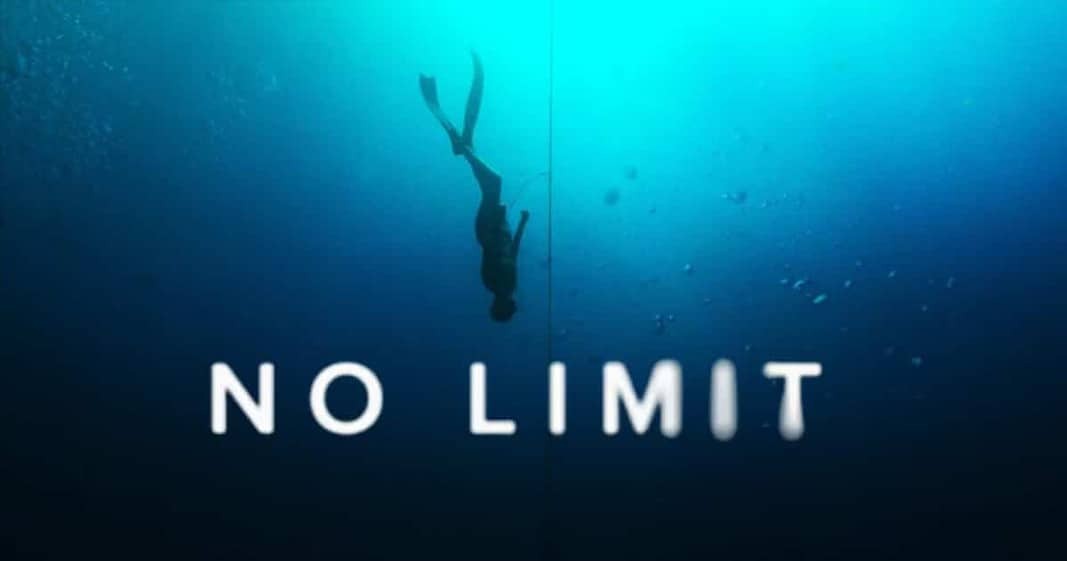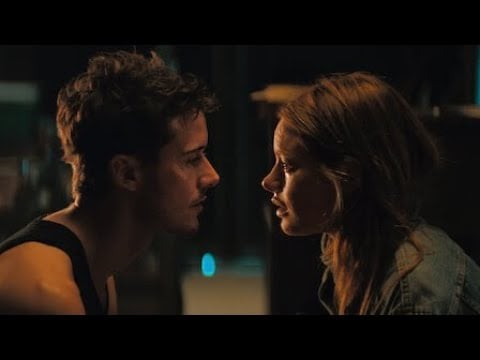Let’s be honest – divers everywhere love to watch diving films and complain about all the things the movie got completely wrong about diving. As a scuba diver, 47 Meters Down: Uncaged drove me crazy with its unbelievable bottom times and lack of burst eardrums. And as a freediver, I won’t even speak of how freediving as a sport was portrayed in the movie The Freediver.
But when I read Carlos Serra’s book The Last Attempt: The True Story of Freediving Champion Audrey Mestre, which shed light on the horrific death of Audrey Mestre, I wondered aloud why the story had not yet made its way to the big screen (other than ESPN’s No Limits – The Audrey Mestre Documentary).
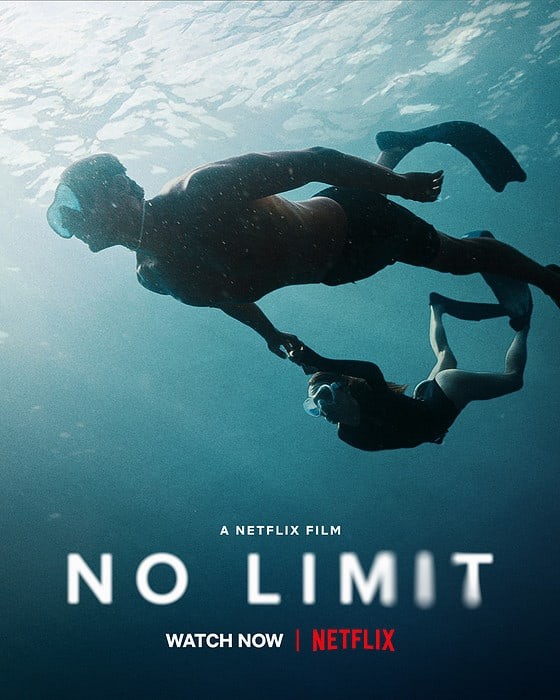
Then I discovered No Limit on my Netflix feed. And while I did enjoy some of the underwater imagery and scenic shots, the freediving instructor in me often had to pause the movie and yell angrily at the screen. It was almost as if the production team didn’t hire a freediving consultant (or at least didn’t pay attention to them very closely).
Check out a brief synopsis of No Limit and the film’s top seven most frustrating scenes from a freediving perspective below.
A Brief Synopsis (CAUTION: with spoilers!)
French student Roxana (based on Audrey Mestre) discovers freediving through a course in southern France. She meets world champion freediver Pascal (based on Pipin Ferreras) and falls in deep torrential love with him and the sport. Roxana joins him in his conquest to set a new world record in the No Limit (NLT) freediving discipline, eventually convinced to set the record herself after Pascal is forced to stop competing.
Roxana’s life and story end at 180m (591ft), where the air that will take her back to the surface is mysteriously gone from her sled’s tank. Pascal is the last person to check the tank, and one of the final scenes depicts him staring menacingly into the camera and smoking a cigarette.
The Freediving Fallacies
Roxana’s Freediving Course
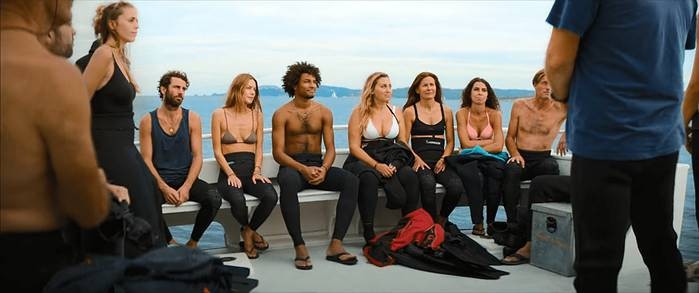
While it seems that Tom is the only actual freediving instructor on the boat during Roxana’s freediving course (Stéphane doesn’t seem to be one), there are at least 12 students! Students receive what seems like the briefest of theory sessions on the boat AND training off the line in their first open water session.
Stéphane even mentioned that Pascal is an excellent freediver because he has “developed an extraordinary threshold for pain.” Is pain another way to say contractions? Because there should absolutely be no pain while freediving.
Where’s Roxana’s snorkel?
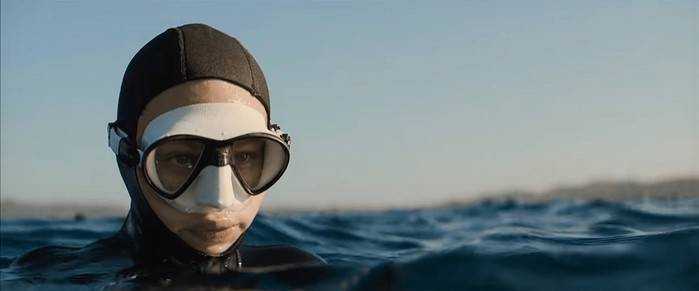
Look, I understand that people’s faces don’t exactly look more attractive with a snorkel attached (and Roxana was heartbreakingly beautiful even with a mask and hood on). And who doesn’t remove their own snorkel for underwater photos and videos? But whether it’s in the middle of a freediving course or her stint as a competition safety diver – where in the world is her snorkel? Did she lose it? Is it at the bottom of the ocean? We’ll never know.
Pascal’s Spontaneous CNF dive
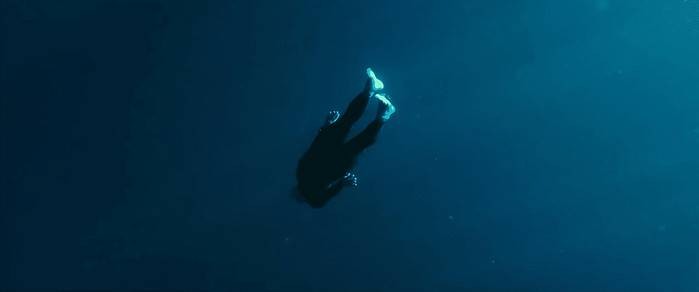
At one point during Roxana’s freediving course, Pascal dives into the water from the boat, surfaces next to Roxana, and speaks to her about trusting her instincts. But then, somehow, he immediately takes a quick, not-full breath, dives down without a mask, and does a Constant Weight No Fins (CNF) dive off the line for at least 2 minutes.
No breathe-up and full breath? No mask? In the open water without a line, lanyard, or safety? Come on.
Pascal’s First 172m dive
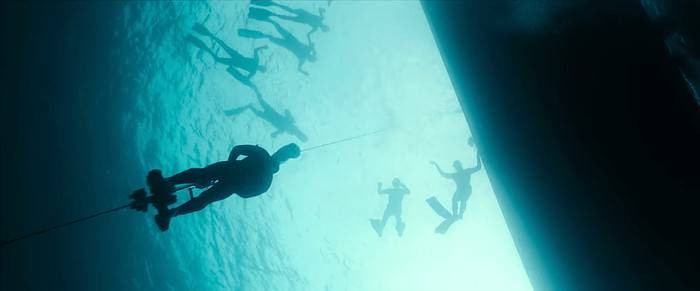
In Pascal’s first dive to 172m (564ft), he returns safely while Mathieu – one of the safety divers – blacks out and ultimately dies. The “first responder” in the film doesn’t know CPR – it’s up to Roxana to perform CPR on unresponsive Mathieu. In a real attempt to a depth like this today, no team of freedivers would ever consent to this level of incompetence regarding safety.
They even said that Mathieu was a “rookie.” I wouldn’t call anyone that can dive to 40m (131ft) a rookie, but maybe they meant that it was his first time performing safety to that depth.
Roxana Spontaneously Becomes a Competition Safety
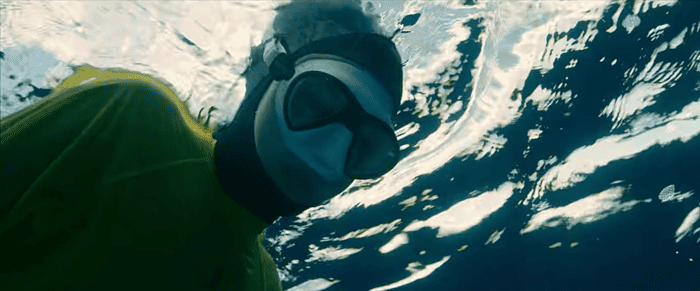
Pascal’s official No Limit World Record attempt is already strange, considering AIDA suspended NLT record ratification in 2012, and this movie is set in 2016. However, he says his team now needs a surface safety diver (also incorrect since competition organizers provide a safety team for world competitions). Roxana volunteers, and while Stéphane rightfully protests, the rest of the team exclaims that she can do it because “she has a gift” and “knows first aid.” What?
This is ABSOLUTELY NOT all you need to become a safety diver at a freediving competition, and the public needs to be aware of this so they can stop sensationalizing freediving as such a dangerous sport. Also, let’s not forget that Roxana even needed to learn blackout rescue AFTER taking a freediving course. Real-life freediving courses have safety and blackout rescue as requirements before certification.
And why is Roxana still missing her snorkel – even as a competition safety diver?
Roxana’s 56m CWT National Record
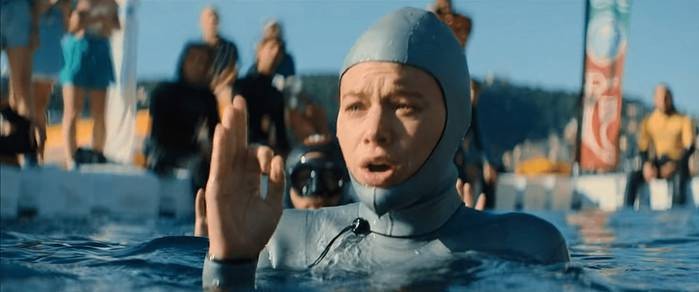
Roxana’s AIDA French National Record performance of 56m (184ft) would definitely not get a white card in real life. Setting her weak recovery breathing aside, she dipped her airways multiple times during the surface protocol. And do you ever see athletes not holding the line directly after their performance at a competition? Maybe I’m being nitpicky, but any self-respecting real-life AIDA Judge would have given her a red card for those airways.
Incorrect Statements About Blackouts
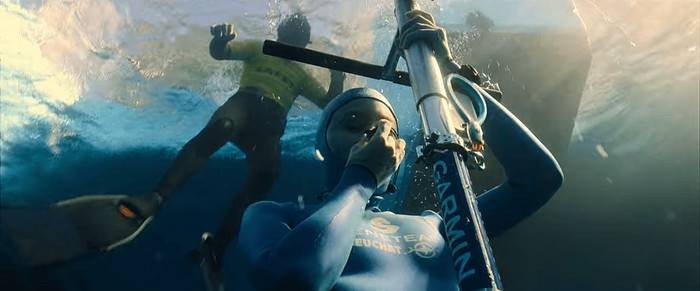
There were two particular pieces of freediving medical information in No Limit that must have made freedivers everywhere laugh out loud. The first was when Tom said all blackouts happen 20m (66ft) before the surface. If he’s talking about shallow water blackouts, the actual information is 10m (33ft) below the surface, but even then, blackouts have happened deeper, especially on really deep dives. Who fact-checked the freediving information in this film?
The second was when Stéphane said that blackouts “happens to some divers, with age. The problem is that once they start, they rarely stop.” Quoi? That statement is so ridiculous that it made me say “what” in French! Can any older freedivers – or better yet, a medical doctor – explain yhow this would be possible?
Blackouts happen when a freediver becomes severely hypoxic, which can come from hyperventilation before a dive, feeling stressed or tired, pushing limits too far, improper recovery breathing, or the rapid drop in the partial pressure of oxygen on ascent. Not age!
Did you have any moments from No Limits (or any other freediving movie) that blew your mind with how wrong they got it? Let us know in the comments!

